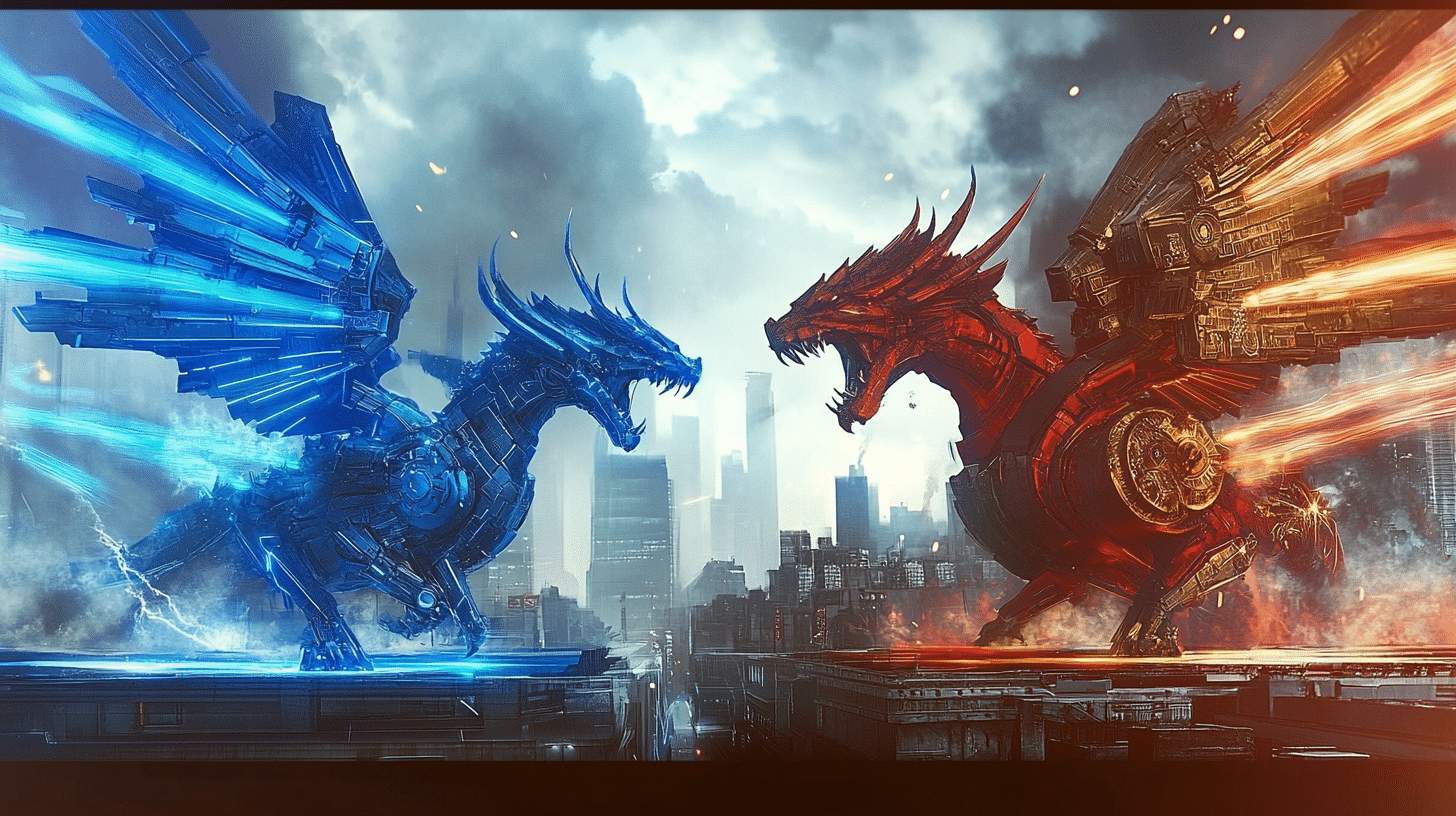In an age when the development of artificial intelligence is progressing rapidly, the market for generative AI has become a global battleground. While American market leaders such as OpenAI and Google are defending their position, Chinese giants such as Alibaba, with their Qwen series and DeepSeek, have set new standards. This technological revolution is not only leading to a race between superpowers, but also raising fundamental questions about data processing and security.
The new order of the AI world
The entry of Chinese providers into the international AI market has already had a dramatic impact on the industry landscape after just a few weeks. While OpenAI continues to be considered a pioneer, DeepSeek has fought its way to a remarkable position with its innovative approach to model development. Particularly noteworthy is the fact that DeepSeek has managed to develop comparably powerful models with significantly fewer hardware resources. This increase in efficiency is considered by analysts to be potentially market-changing.
DeepSeek AI: open-source power with less hardware
The announcement of DeepSeek AI is particularly surprising. With its DeepSeek-V3 model, it reportedly works significantly more efficiently than GPT-4 or Claude 2.1. While OpenAI and Anthropic are investing billions in high-performance data centres, DeepSeek claims to provide equally powerful AI models with less hardware.
The company has already attracted attention with DeepSeek-Coder, an open-source code generator. Now, DeepSeek-V3 takes it one step further:
- Higher efficiency: According to reports, DeepSeek requires fewer GPU resources to achieve comparable performance.
- Open-source approach: Unlike OpenAI, the model is publicly available, enabling broader application and further development.
➜ More about DeepSeek AI: https://deepseek.com
Alibaba Qwen: The Chinese tech giant is attacking
Alibaba is not an unknown name in the world of AI. With Qwen-2.5 Max, the company has released a powerful model that sometimes performs better in benchmark tests than GPT-4o or Gemini 1.5.
What makes Qwen special?
- Enormous scalability: Alibaba relies on its cloud infrastructure to efficiently provide Qwen.
- Multimodality: Similar to GPT-4o, Qwen can interact with text, images and possibly soon audio as well.
- Chinese focus: While Western AI models are often optimised for English speakers, Qwen offers excellent support for Chinese users.
➜ More about Alibaba Qwen: https://chat.qwenlm.ai/
Reactions of the established providers
The competition from China has triggered immediate reactions from the established providers:
- OpenAI: The introduction of the Reasoning Model 03 shows that OpenAI is accelerating its model generations to remain competitive.
- Anthropic: Claude 3 is already in the starting blocks, with improvements in logical reasoning and context processing.
- Google DeepMind: Gemini 1.5 has been introduced with an extended context window to be more attractive in the corporate world.
OpenAI in particular is feeling the pressure as it relies on a heavily closed licensing model, while open-source alternatives such as DeepSeek are increasingly gaining popularity.
Market reactions: Nvidia and the $600 billion question
The AI competition has not only technological but also economic implications. This was particularly evident in the stock market:
- Nvidia, the leading provider of AI chips, lost $600 billion in market capitalisation – all in the space of a single day.
- Investors fear that more efficient AI models will require less high-end hardware, which could lead to a long-term decline in demand for Nvidia GPUs.
- Companies like AMD and Intel could benefit if cheaper hardware plays a bigger role.
➜ Report on Nvidia’s plunge: https://www.ft.com/nvidia
China vs. USA: data protection and geopolitical concerns
Data protection remains a key point of discussion:
- China viewed sceptically: Western companies are often hesitant to use Chinese AI solutions for fear of state surveillance.
- But US AI models are not without problems either: OpenAI, Google and Co. are also criticised because their servers are located in the US and subject to the surveillance laws there.
- SaaS models generally problematic: Regardless of whether a company uses an AI from OpenAI or Alibaba, there is still a risk that sensitive company data will be unintentionally processed or passed on.
The safest solution therefore remains: do not process critical data using public SaaS AI models. Companies should host their own models on private servers or on-premise clouds.
A new AI competition begins
The ‘War of the Worlds’ is in full swing in the AI industry. The previous market leaders are facing new competition from China. The question of whether
- open-source AI will dominate the market in the long term
- remains particularly exciting. How are OpenAI, Google and Anthropic reacting to the threat?
- What impact will the new developments have on the hardware industry?
One thing is for sure: the next few months will be crucial in determining who wins the race for the best generative AI.
Sources & further links:
- DeepSeek AI: https://deepseek.com
- Alibaba Qwen: https://chat.qwenlm.ai/
- Nvidia price crash: https://www.ft.com/nvidia
- OpenAI Reasoning Model 03: https://www.openai.com


